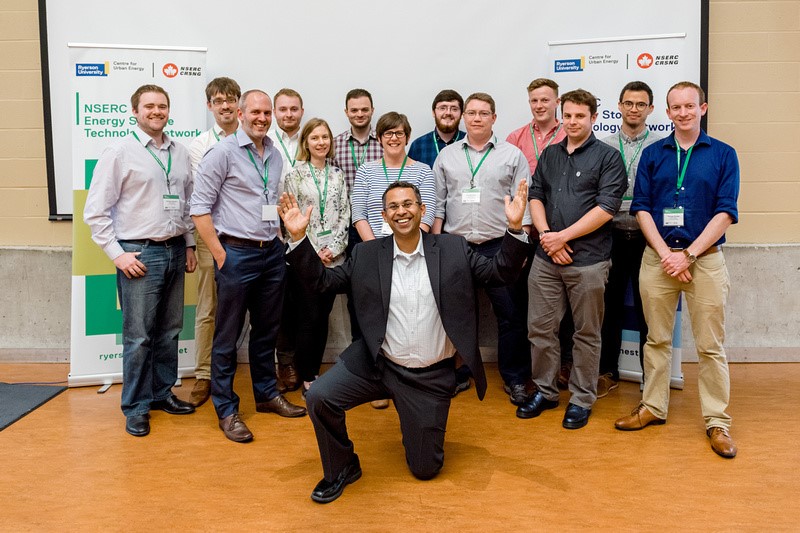Renewable energy has been around for decades, yet solar and wind power hasn’t really taken off as main energy sources. This is in part because when it isn’t sunny or windy, we haven’t found a great way to store the energy for future use. In order to keep up with emerging clean forms of energy management, we need new, efficient energy storage technologies and new ways of looking at sustainable business, achieving public acceptance, and addressing regulatory issues. To achieve this quickly, collaboration across professions, sectors, and global borders is needed!
Both the UK and Canadian governments are prioritizing energy storage in the movement towards clean energy. The UK is a global leader, having spent more on smart energy demonstration projects than any other European Union country. But if we go about it alone, reaching full capabilities in energy storage would take a very long time. And with the emerging threat of climate change, we don’t have that much time to waste!
In Canada, the NSERC Energy Storage Technology (NEST) Network brings together experts from across the country to address these issues, and is working on projects that complement research going on in the UK. In June 2017, NEST hosted a week of activities that brought together a range of stakeholders to collaborate across sectors, professions and jurisdictions. Part of the mix were two staff and eleven late-stage PhD students from the Center for Doctoral Training (CDT) in Energy Storage (CDT-ESA), a UK-based PhD research based jointly out of the Universities of Sheffield and Southampton.
Sharon Brown of the CDT-ESA stated, “as Centre Manager and organiser of our visit, I was really pleased to see the NESTNet Summer School and Conference provide such a great opportunity for direct dialogue between our researchers and Canadian colleagues. We compared our energy landscapes, learned how common challenges have been approached and resolved, shared ideas, and (for most of us) experienced Toronto (and Canada) for the first time. We all came away with a much clearer appreciation of how our own R&D strengths compliment the NESTNet community, and I hope this activity has ‘opened the door’ to pursing joint Canadian-UK energy storage research collaborations.”
Professor Christopher Jones of Sheffield presented on his research on public acceptance of new energy storage technologies, which had many similarities to a presentation about a Canadian research team based out of the University of Waterloo. After sharing lessons learned and exchanging contact information, the two will be following up to ensure they benefit from each other’s likeminded work.
Dr. Bala Venkatesh, Director of the NEST Network praised the UK researchers and students for providing “invaluable input into our research and progress, giving an international dimension and perspective.”
UK-Canada collaboration will be further embedded with the help of SIN after another UK visit surrounding a Canadian conference on energy storage, to include a UK-Canada bilateral workshop, (planned for this September) and a follow up Canadian trade mission to the UK to further connect industry shortly thereafter.

